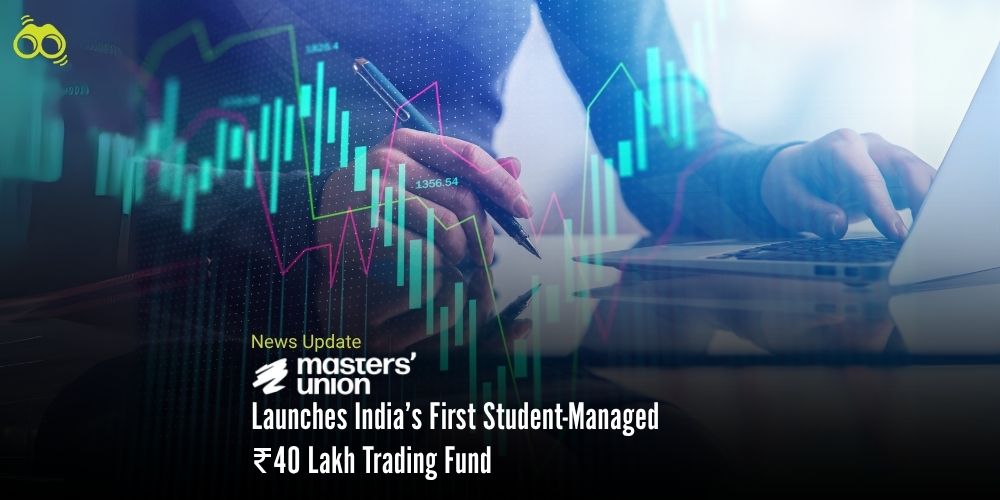From Classroom to Trading Floor: New Finance Programme Offers Hands-On Market Exposure
Gurugram B-School Empowers Students with Real Capital to Trade Live Markets
In a landmark development for finance education in India, Master’s Union, a Gurugram-based business school, has launched a ₹40 lakh student-managed trading fund, ushering in a transformative era of experiential learning. Introduced under the newly unveiled Postgraduate Programme in Capital Markets & Trading (PGP-CMT), this initiative is the first of its kind in the country, as it empowers MBA students to trade in live markets using real capital, thereby bridging the long-standing gap between academic theory and practical market experience.
Commencing in August 2025, the inaugural cohort of the PGP-CMT will manage the ₹40 lakh fund across eight asset classes, including equities, derivatives, fixed income, commodities, currencies, and regulated digital assets. The fund, sourced from the Master’s Union Investment Fund (MUIF), is allocated exclusively for educational purposes. Importantly, the institution has clarified that this is not a collective investment scheme and does not involve third-party capital, thereby maintaining full compliance with regulatory standards.
In order to ensure responsible engagement with real markets, students will operate under the guidance of seasoned industry professionals, including high-frequency traders, hedge fund managers, and portfolio strategists. Over 20 experts are involved in the programme, such as Sanjiv Bhasin (former Director, IIFL), Siddhartha Rastogi (MD, Ambit Investment Advisor), Manoj Goel (Co-founder, The WallStreet School), and Aman Singhania (Senior Vice President, NSE Indices). Through their mentorship, students are expected to gain meaningful exposure to the dynamics of modern financial markets.
According to veteran trader Sanjiv Bhasin, India’s trading education ecosystem has been fragmented and largely informal. He noted that this initiative introduces much-needed institutional structure and ethical discipline, serving as a reliable alternative to speculative and unstructured learning channels. Furthermore, beyond live trading, students will also participate in a simulated Wealth Management Challenge, which will train them in designing compliant advisory models. This feature aims to prepare participants for careers in wealth advisory and financial planning, expanding the programme’s practical application beyond trading.
Through this initiative, Master’s Union seeks to redefine finance education in India by combining academic depth with real-market relevance, and in doing so, sets a new benchmark for business schools nationwide. This bold move firmly positions experiential learning at the heart of India's evolving financial education landscape.
Editor’s Note:
The launch of a student-managed trading fund by Master’s Union marks a defining moment in India’s finance education landscape. By placing ₹40 lakh of real capital in the hands of MBA students and integrating structured mentorship from leading market professionals, the institution has effectively bridged the longstanding divide between academic instruction and market application. Masters' Union's initiative blends theory and practice in business education by offering live trading across asset classes with regulatory compliance and ethical conduct, setting a new experiential learning standard. The programme also includes a simulated Wealth Management Challenge for holistic development, ensuring technical skills and client-centric advisory insights, preparing students for various financial roles.
Skoobuzz believes that the implications of this approach extend well beyond one institution. It presents a replicable model for other academic bodies seeking to align their pedagogy with market realities. In doing so, it reaffirms the role of education in shaping professionals who are not only capable but also industry-ready. This bold step deserves recognition as a progressive stride towards future-focused financial education.














0 Comments (Please Login To Continue)